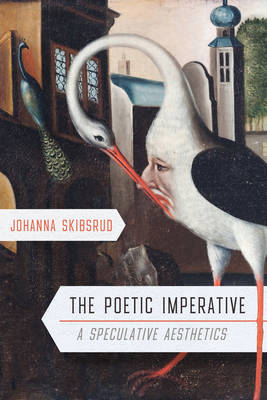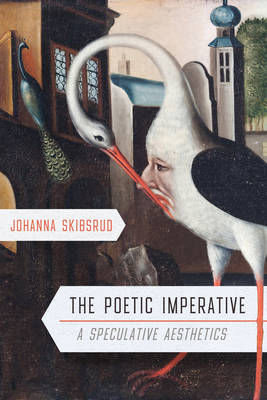
- Retrait gratuit dans votre magasin Club
- 7.000.000 titres dans notre catalogue
- Payer en toute sécurité
- Toujours un magasin près de chez vous
- Retrait gratuit dans votre magasin Club
- 7.000.000 titres dans notre catalogue
- Payer en toute sécurité
- Toujours un magasin près de chez vous
41,95 €
+ 83 points
Description
This book aims to expand our sense of poetry's reach and potential impact. It is an effort at recouping the poetic imperative buried within the first taxonomic description of human being: nosce te ipsum, or know yourself. Johanna Skibsrud explores both poetry and human being not as fixed categories but as active processes of self-reflection and considers the way that human being is constantly activated within and through language and thinking. By examining a range of modern and contemporary poets including Wallace Stevens, M. NourbeSe Philip, and Anne Carson, all with an interest in playfully disrupting sense and logic and eliciting unexpected connections, The Poetic Imperative highlights the relationship between the practice of writing and reading and a broad tradition of speculative thought. It also seeks to demonstrate that the imperative know yourself functions not only as a command to speak and listen, but also as a call to action and feeling. The book argues that poetic modes of knowing - though central to poetry understood as a genre - are also at the root of any conscious effort to move beyond the subjective limits of language and selfhood in the hopes of touching upon the unknown. Engaging and erudite, The Poetic Imperative is an invitation to direct our attention simultaneously to the finite and embodied limits of selfhood, as well as to what those limits touch: the infinite, the Other, and truth itself.
Spécifications
Parties prenantes
- Auteur(s) :
- Editeur:
Contenu
- Nombre de pages :
- 160
- Langue:
- Anglais
Caractéristiques
- EAN:
- 9780228001706
- Date de parution :
- 01-06-20
- Format:
- Livre relié
- Format numérique:
- Genaaid
- Dimensions :
- 160 mm x 231 mm
- Poids :
- 430 g







